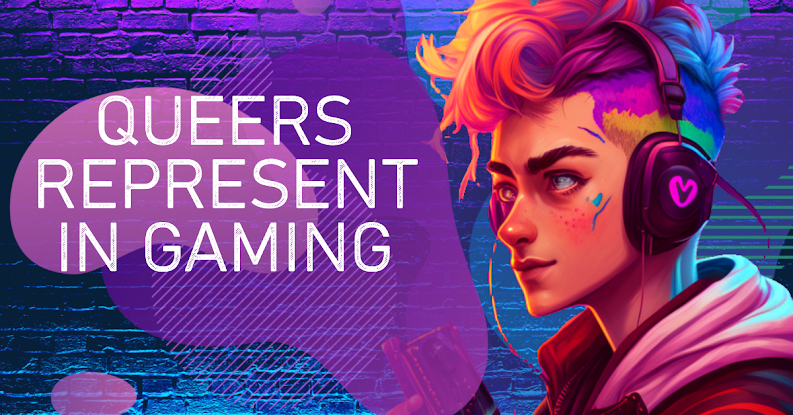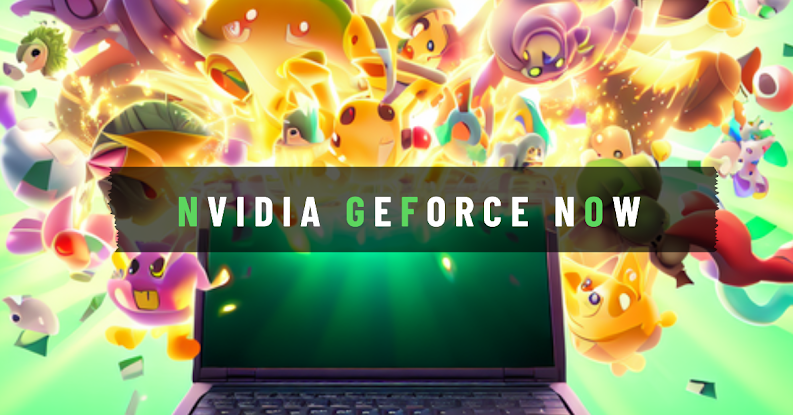The Importance of LGBTQ+ Representation in Gaming
LGBTQ+ representation in the game business is a subject that is very personal to me, therefore today I want to talk about it with you. I know how essential it is to see yourself represented in the games you play, and how frustrating it can be when you don't. I'm a gay gamer myself. In this piece, I'll look at the history, progress, difficulties, and future of LGBTQ+ representation in gaming, as well as why it's important for the gaming community and society as a whole.
Historical Context
Early Challenges and Negative Portrayals
Let's start with some historical context. LGBTQ+ representation in gaming has a long and complicated history, dating back to the early days of video games. Some of the earliest examples of LGBTQ+ characters in games were either hidden, censored or portrayed in a negative or stereotypical way. For instance, in the 1986 game Moonmist, the player can encounter a lesbian couple, but only if they choose a specific color for their character. In the 1988 game Police Quest 2, the player can encounter a trans woman named "Bambi", who is depicted as a prostitute and a murder victim. In the 1992 game Ultima VII, the player can encounter a gay couple named Sin'Vraal and Sethys, who are portrayed as evil and twisted.
These illustrations highlight how, in the early days of gaming, LGBTQ+ representation was frequently inadequate, problematic, or insulting. "The early LGBTQ+ model in gaming was based on ignorance, fear, and prejudice," said one specialist in the game business. Characters that identify as LGBTQ+ were omitted, eliminated, or vilified. They were viewed as threats, jokes, or victims rather than as actual people. The LGBTQ+ group suffered as a result of this paradigm because they played games that made them feel excluded, ostracized, and dehumanized.
Progress Made
Positive Examples of LGBTQ+ Representation in Recent Games
Thankfully, things have changed a lot since then. In recent years, LGBTQ+ representation in gaming has improved significantly, with more diverse, complex and positive models of LGBTQ+ characters and relationships in games. Some of the examples of positive representation in recent games are: Ellie and Dina from The Last of Us Part II, Kassandra and Alexios from Assassin's Creed Odyssey, Tracer and Emily from Overwatch, Max and Chloe from Life is Strange, and many more.
These examples show how LGBTQ+ representation in gaming has become more inclusive, respectful and empowering in recent years. As one queer gamer put it: "Positive representation in gaming means a lot to me. It makes me feel seen, validated and accepted. It gives me role models to look up to and relate to. It also helps me connect with other gamers who share my identity and experiences." Positive representation in gaming has a positive impact on the LGBTQ+ community, who feel more included, valued and celebrated by the games they play.
Ongoing Issues
Challenges and Shortcomings in LGBTQ+ Representation
However, this does not mean that everything is perfect. There are still many issues with LGBTQ+ representation in gaming that need to be addressed and resolved. Some of the issues with LGBTQ+ representation in gaming are: lack of diversity within the LGBTQ+ spectrum (e.g., most LGBTQ+ characters are white, cisgender and gay or lesbian), lack of agency or choice for the player (e.g., some games force the player to romance a specific character or gender), lack of visibility or recognition (e.g., some games hide or downplay their LGBTQ+ content or characters), lack of sensitivity or awareness (e.g., some games use harmful or inappropriate words or tropes to depict LGBTQ+ characters or themes).
These problems highlight how LGBTQ+ representation in video games is still unsatisfactory, lacking, or problematic in various aspects. There is still much work to be done to ensure accurate and positive representation of LGBTQ+ persons in gaming, according to one industry expert. It is unacceptable to tokenize, fetishize, or devalue LGBTQ+ characters. They ought to be handled with decency, genuineness, and respect. Additionally, they ought to demonstrate the depth and diversity of the LGBTQ+ culture. The LGBTQ+ group is negatively impacted by these problems because they feel misunderstood, stigmatized, or offended by the games they play.
The Future of LGBTQ+ Representation in Gaming
Potential Developments
So what does the future hold for LGBTQ+ representation in gaming? Well, there is no definitive answer to that question, but there are some potential future developments that could improve LGBTQ+ representation in gaming. Some of these developments are: more involvement and input from LGBTQ+ creators and gamers in the gaming industry (e.g., hiring more LGBTQ+ developers, writers and designers), more innovation and experimentation with LGBTQ+ content and mechanics in games (e.g., creating more genres, styles and formats that explore LGBTQ+ themes), more education and dialogue about LGBTQ+ issues and perspectives in gaming (e.g., providing more resources, information and feedback for gamers and developers).
These developments could improve LGBTQ+ representation in gaming by making it more diverse, creative and meaningful. As one queer gamer put it: "My hope for the future of LGBTQ+ representation in gaming is that it becomes more normal, natural and nuanced. I hope that LGBTQ+ characters are not just added for diversity's sake, but for storytelling's sake. I hope that LGBTQ+ themes are not just used for shock value or controversy's sake but for artistic's sake. I hope that LGBTQ+ gamers are not just tolerated or accepted but embraced and celebrated." These developments could have a positive impact on the LGBTQ+ community by making them feel more represented, inspired and engaged by the games they play.
As a way to wrap off this piece, I'd want to emphasize the significance of LGBTQ+ representation in video games. The LGBTQ+ community should pay attention to it since it has an impact on their identity, self-worth, and general wellbeing. It is significant for the gaming industry since it has an impact on their quality, diversity, and inclusion. The general population should care about it since it has an impact on their awareness, comprehension, and empathy.
As a result, I implore you all to support LGBTQ+ representation in gaming by playing more games with LGBTQ+ content or characters, providing feedback to the developers of these games, talking with other gamers about your opinions and experiences, learning more about LGBTQ+ issues and perspectives, speaking out against discrimination and harassment, and celebrating diversity and love in gaming!




Comments
Post a Comment
Connect with House Anomaly, we are always open to collaboration or critiques on how we can do better.